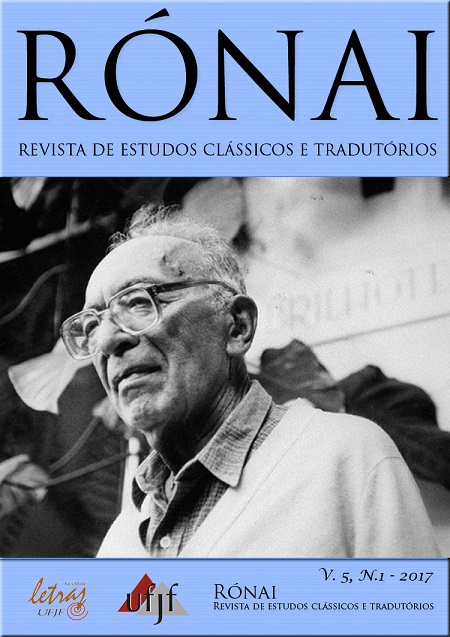The linguistic policies and the issue of literary manipulation in Japanese literature into English: an american ideological and political project
DOI:
https://doi.org/10.34019/2318-3446.2017.v5.23204Keywords:
translation, Japanese literature, English language, linguistic policy, literary manipulationAbstract
In this paper, we address the issue of literary manipulation in Japanese literature translations into English language, highlighting the power of translation as a form to create in readers’ cultural identities and domestic representations. We also bring the question of linguistic policies and their relation to literary manipulation, according to Calvet (2007), because, as we have seen, the USA used English language supremacy and political power in order to create in the readers of Japanese translated works a vision of a bucolic and friendly Japan, allied with the Americans and, no longer, a threatening force as it was before.
Downloads
References
CALVET, Louis-Jean. As políticas linguísticas. Trad. de Jonas Tenfen, Isabel de Oliveira Duarte e Marcos Bagno et al. Parábola, 2007.
CRYSTAL, David. English as a global language. Cambridge: Cambridge University Press, 2003 [1997].
LEFEVERE, André. Translation, rewriting and the manipulation of literary fame. London: Routledge, 1992.
OLIVEIRA, Maria Clara Castellões de. Entrelaçamento de tradução e história no contexto brasileiro. Revista Ipotesi v. 10, n.1, n.2 p. 167 - 177, jan/jun, jul/dez 2006.
SAVEDRA, Mônica Maria Guimarães & LAGARES, Xoán Carlos. Política e planificação linguística: conceitos, terminologias e intervenções no Brasil. Revista Gragoatá, EDUFF, vol. 32, 2012
VENUTI, Lawrence. The Translator’s Invisibilty: A History of Translation. 2 ed. London, New York: Routledge, 2008 [1995].
_________. Escândalos da Tradução: por uma ética da diferença. Trad. de Laureano Pelegrin et al. São Paulo: EDUSC, 2002 [1998].
Downloads
Published
How to Cite
Issue
Section
License
Copyright (c) 2017 Marcionilo Euro Carlos Neto

This work is licensed under a Creative Commons Attribution 4.0 International License.
Copyright
The authors of the published contributions agree with the following items:
1. The authors keep the copyright and convey to the journal the right of first publication, the work being licensed under a Creative Commons Attribution License 4.0 International.
2. The authors are allowed and stimulated to publicize and distribute their work online after the publication in the journal, recognizing first publication in this journal.
3. The authors of the approved works authorize the journal to distribute their content, after publication, for reproduction in content indexes, virtual libraries and similars.
For more information about Creative Commons Attribution License 4.0 International, please, go to: https://creativecommons.org/licenses/by/4.0/deed.en
Editorial exemption
The authors of the published contributions are entirely and exclusively responsible for their contents. Its content does not represent an official position of Rónai - Revista de Estudos Clássicos e Tradutórios neither of Faculdade de Letras da Universidade Federal de Juiz de Fora or their partner institutions.



